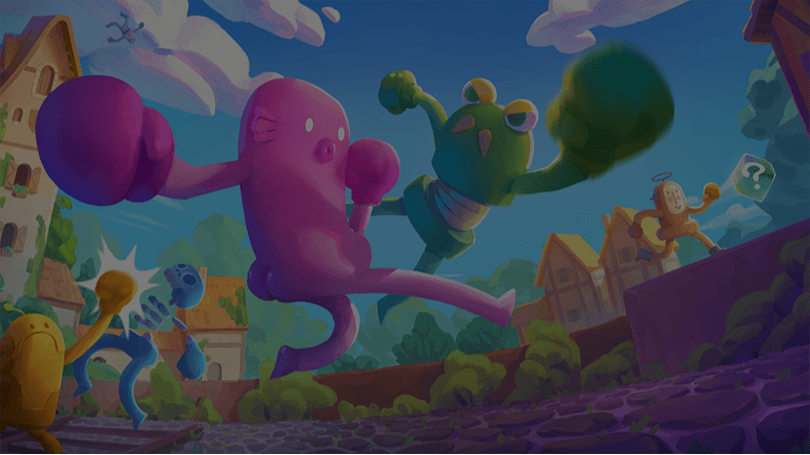
How does a small team create and run a low-latency, physics-based multiplayer game? Tuatara Games uses Unity’s Entity Component System (ECS) to build scalable, flexible, and performant code architecture for their evolving project, and Multiplay Hosting to enable consistent and responsive online gameplay.
Establishing a solid foundation for an evolving, early access multiplayer game
Desktop, consoles
33 (5 working on Bare Butt Boxing)
Vancouver, Canada

Bare Butt Boxing is currently in early access. Knowing the project would evolve over time based on community feedback, Tuatara wanted a scalable tech stack to enable agile work. Choosing Unity and prebuilt solutions from Unity Gaming Services (UGS) allowed them to focus on development and pivot easily when needed.

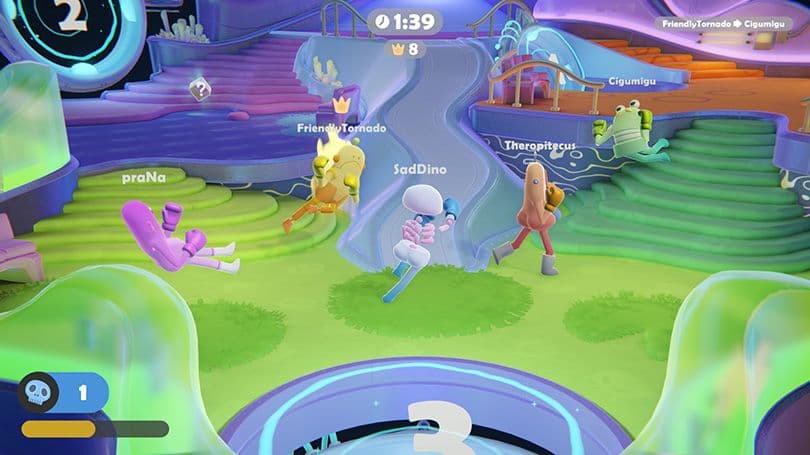
Tuatara built Bare Butt Boxing using Unity’s Data-Oriented Technology Stack (DOTS) from the very start of development.
“Since this is our first game as a new team, we wanted to do early access with a foundation strong enough for us to pivot the design into the right direction,” says software engineer Hendrik du Toit. “DOTS allowed us to modularize our systems in a way that we can test gameplay ideas without weeks of rewriting code.”
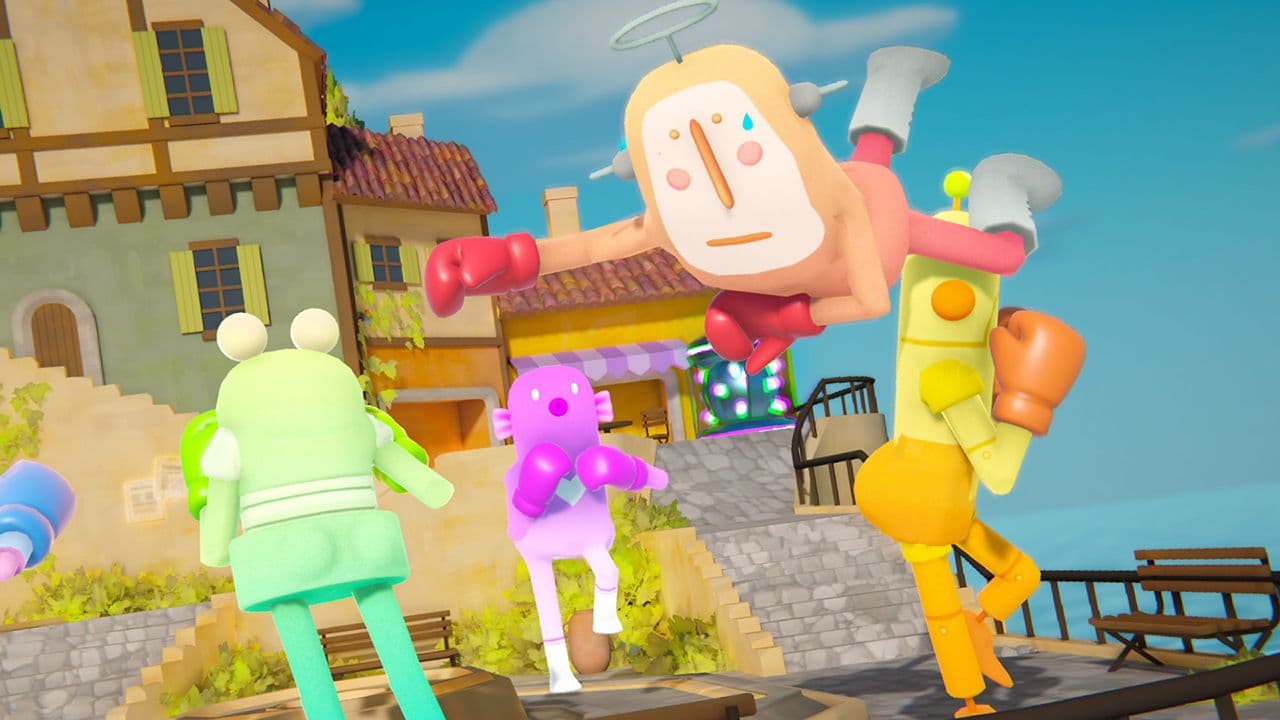
Tuatara’s data-oriented design approach simplifies iteration and allows them to be flexible with optimization. “Having ECS means we can adjust runtime data layout easily without impacting serialized data,” says game programmer Ewan Argouse.
This is key for the game’s eventual multiplatform launch. Bare Butt Boxing’s early access build is currently available on PC and Steam Deck, but Tuatara has plans to release on consoles. They say building with DOTS will help them provide a comparable experience on all target platforms. “The main benefits are short loading times and smoother experiences. If performance is better by default, more players can run the game, no matter the hardware,” Ewan explains.
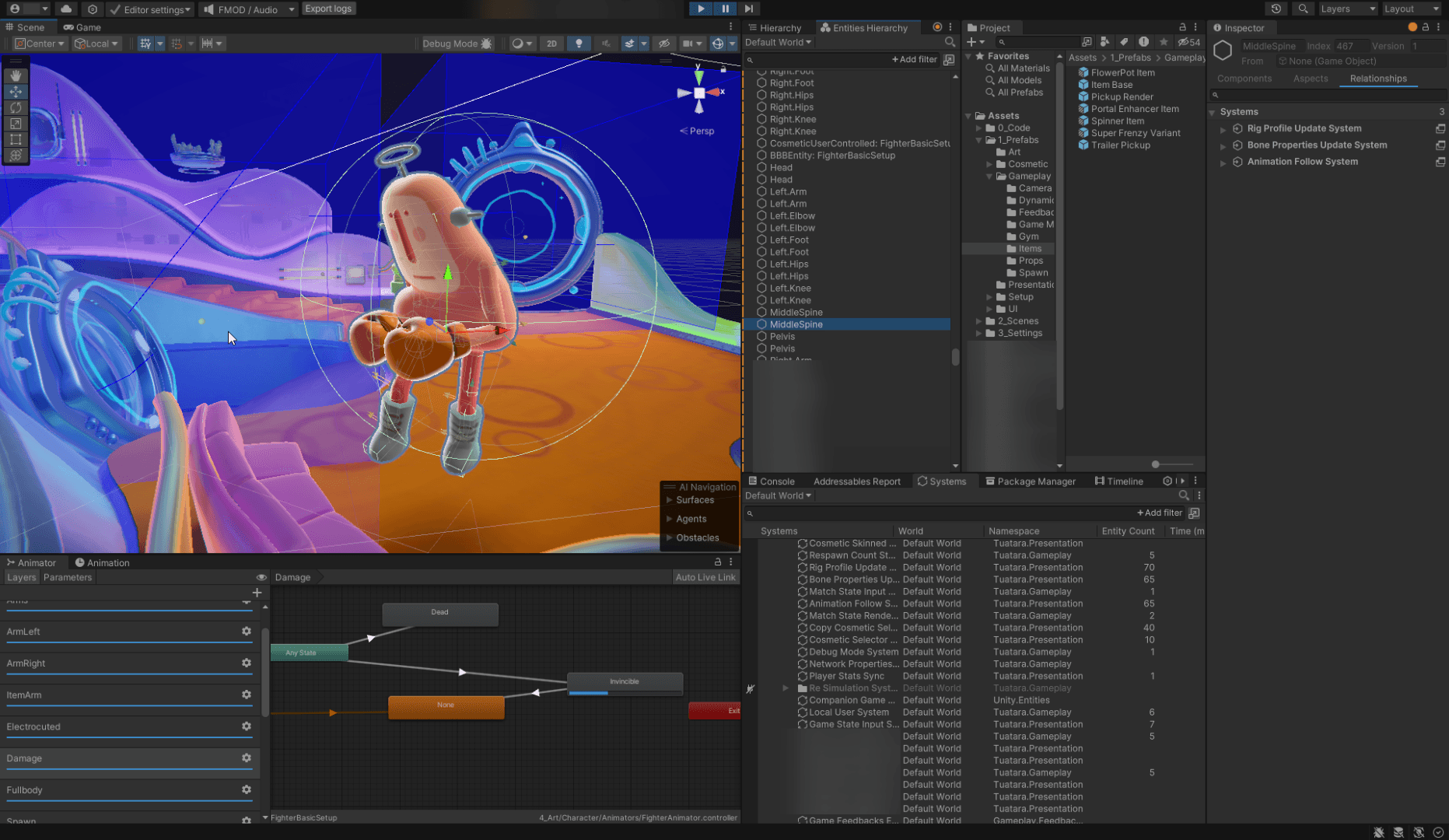
Bare Butt Boxing’s comically exaggerated physics interactions are a core selling point. The studio is using Unity PhysX rather than the new ECS-based physics, but they still credit ECS for helping them achieve their vision without impacting performance.
“ECS has helped us to divide the game into multiple layers without trouble. The game design can be simple and related to the simulation directly, and we can create systems on top of that to present it nicely,” explains Ewan. “Thanks to that, the presentation can be complex while our simulation can be client-predicted without being too heavy on the CPU.”
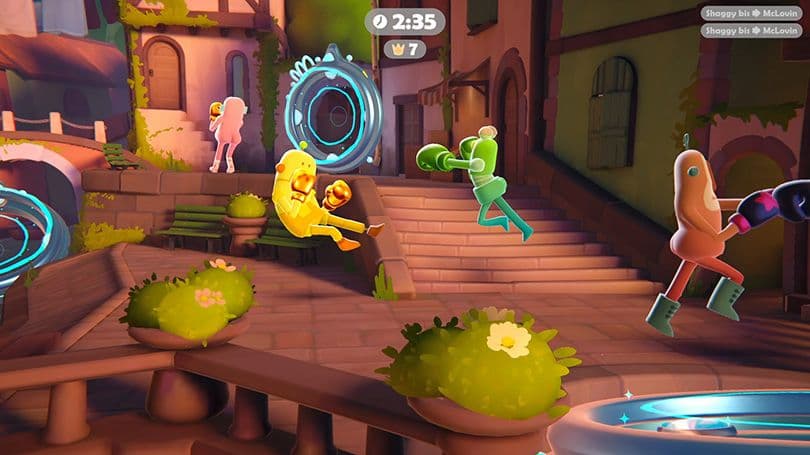
Targeting more platforms means reaching more players, which can increase costs for a live multiplayer game. Knowing this, Tuatara prioritized economical, scalable options for netcode and hosting.
After trying out a few different solutions, they landed on a combination of Photon Fusion and Multiplay. “Photon Fusion has responsive client prediction and netcode, but paying per concurrent user would get expensive as our player base grew,” says Hendrik. Offsetting CPU usage to Multiplay’s dedicated servers helped Tuatara effectively dodge scalability hurdles, making it more affordable long-term.
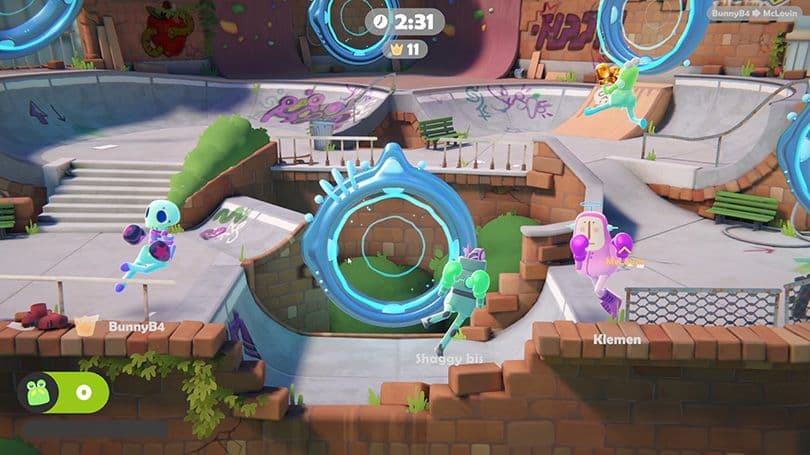
Going with Unity Gaming Services meant Tuatara also had access to other solutions for running live games. “After integrating UGS for MultiPlay, we saw its potential and capitalized on its other services we didn't even realize we wanted, like Cloud Save, Player Accounts, and Remote Config,” says Klemen Lozar, founder, CEO, and creative director at Tuatara.
Running their game with tools that work together helps set Tuatara up for enduring success. “Multiplay integrates well with other services players might ask for during early access,” says Hendrik. “For example, with Matchmaker, we could easily implement a simple matchmaking model, and if players ever wanted more than that, we knew we were set up with the right tech already.”
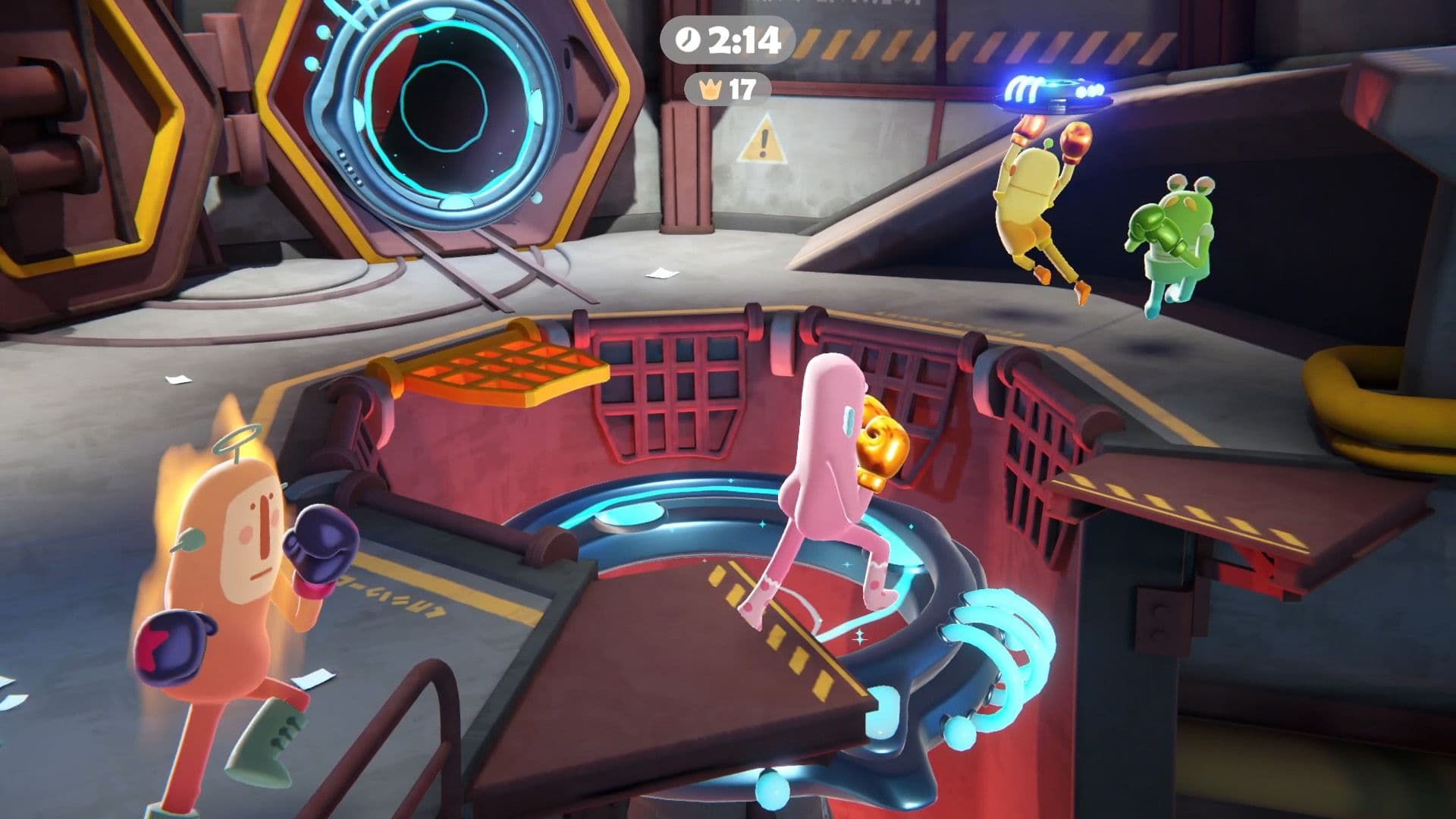
Tuatara hopes to break into the games industry with Bare Butt Boxing. By building their game on top of DOTS and using Multiplay to connect players, they can ensure Bare Butt Boxing comes out swinging when it launches on consoles later this year.
“Relying on other services really helps alleviate the pressure, especially knowing that there’s an amazing team at Unity supporting us to the very end,” says Hendrik.
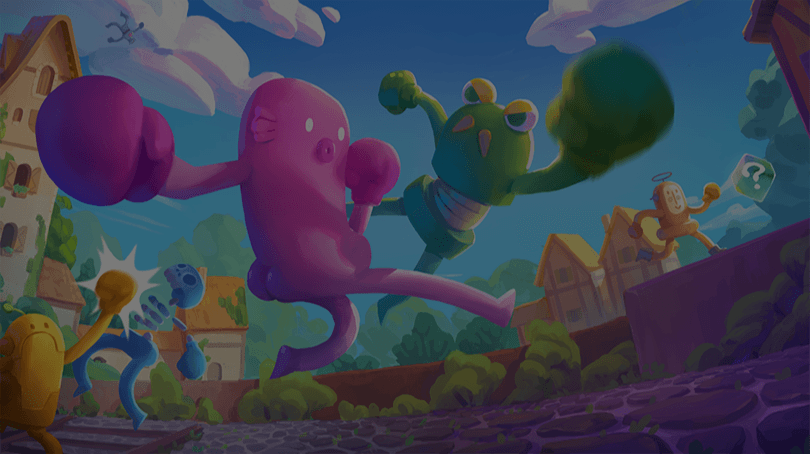
Flexible and extensible tools streamline every aspect of the multiplayer game development journey, from concept and prototyping through launch and live operations.